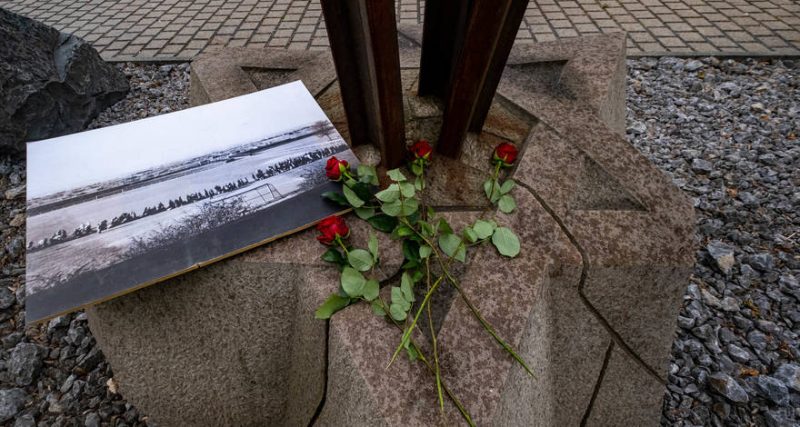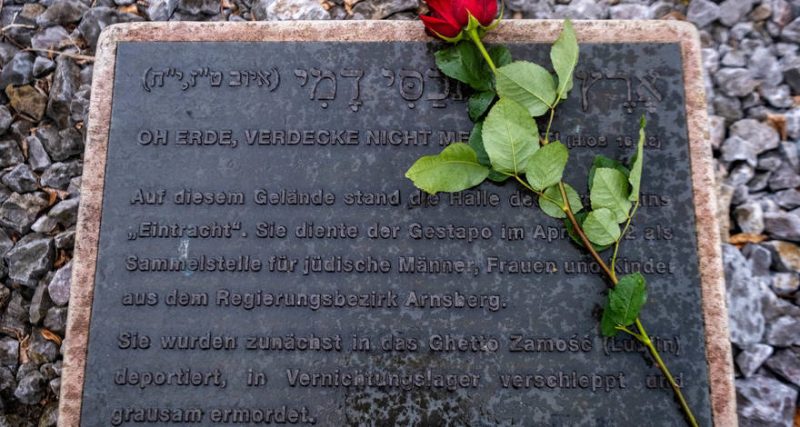Due to the Coronavirus crisis, we would like to use our digital presence to draw attention to this important anniversary.
The city of Lublin, located in eastern Poland, may not be one of the more well-known names within the German national consciousness of remembrance, but the surrounding region was one of the centres of the National Socialist regime’s policy of systematic genocide inflicted against Europe’s Jewish population. Between 1941 and 1943, approximately 1.8 million Jewish people were murdered in the ghettos and camps of Nazi-occupied Poland. Although the majority of victims were native to Poland, many came from further afield, including Dortmund.
On 30 April 1942, a deportation train transported 791 Jewish men, women and children from the main station in Dortmund to the Polish town of Zamość. All of the victims were residents of the Arnsberg local authority area. From 28 April onward, they were taken from their homes and brought to Dortmund. Once they arrived in the city, they were crammed together in the hall belonging to sports club Eintracht Dortmund. The facility served as a so-called deportation collection point. On 3 May 1942, the deportation train – accompanied by police officers from Dortmund – arrived at its destination in Poland. The ghetto in Zamość was already filled with several thousand Jewish people from across Poland and Czechia, many of whom were kept there and subjected to various forms of enforced labour. However, three large waves of deportation saw almost all the residents of the ghetto transported to either the extermination camps in Belsen and Sobibor or the concentration camp in Majdanek. Not a single one of the 791 people deported from Dortmund survived the Holocaust.
Today, a memorial recalling the deportation of April 1942 is located at the place where the victims were gathered – the former Eintracht sports hall. For many years now, BVB, as well as various project partners and fans of the club, have taken part in a memorial event on 28 April to commemorate the deportation to Zamość. Due to the Coronavirus crisis, neither the annual memorial event or the accompanying educational trip could take place this year. Nonetheless, we would like to use our digital presence to draw attention to this important anniversary and call for a moment of remembrance. Flowers were laid down at the memorial today on behalf of all fans and members of the BVB family.
Since 2014, BVB’s anti-discrimination work has included an annual educational trip to various places and memorials in Zamość and the Lublin region. Together with many partners, BVB is committed to an active culture of remembrance and engaged in a broad programme of historical-political education for BVB fans and employees. The BVB-Fanabteilung, the Fan-Projekt Dortmund e.V., the Mahn- und Gedenkstätte Steinwache and the Bildungswerk Stanislaw Hantz e.V. are among the partners involved.







